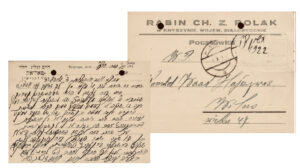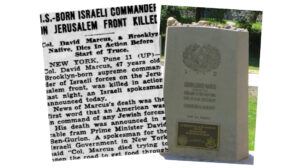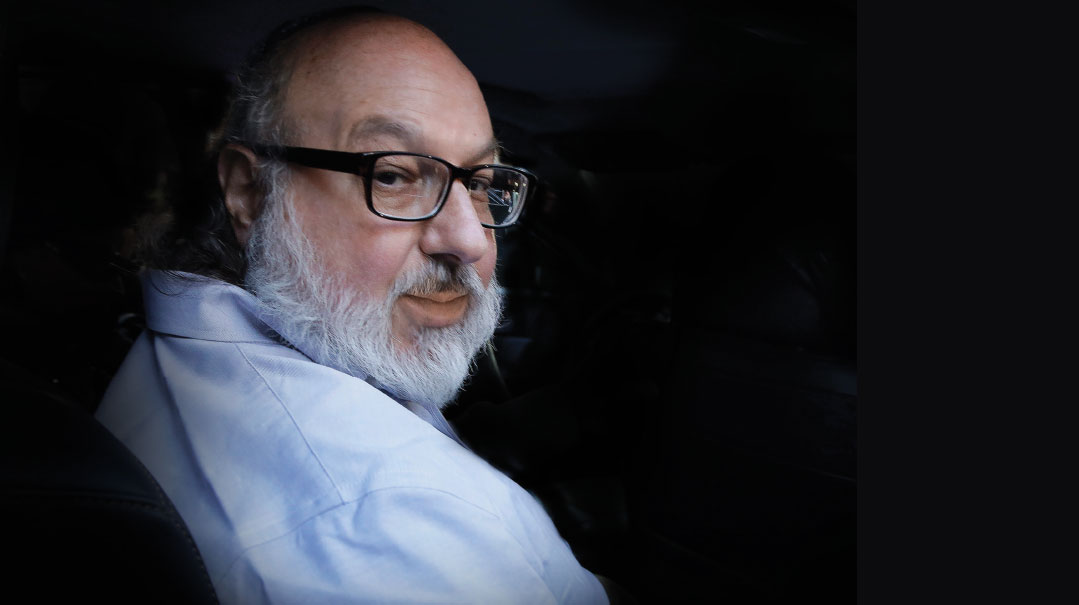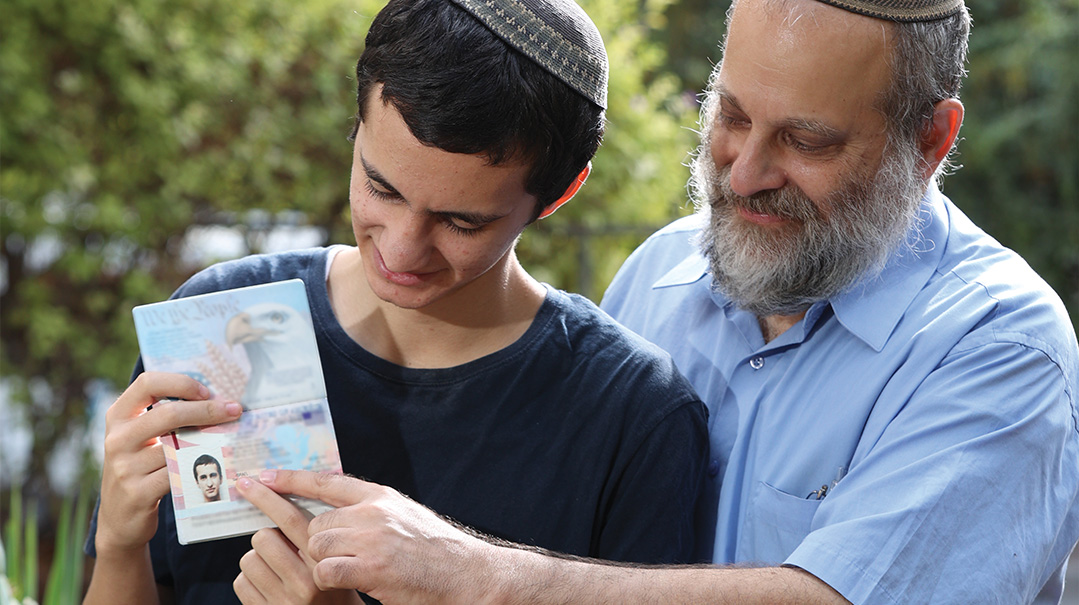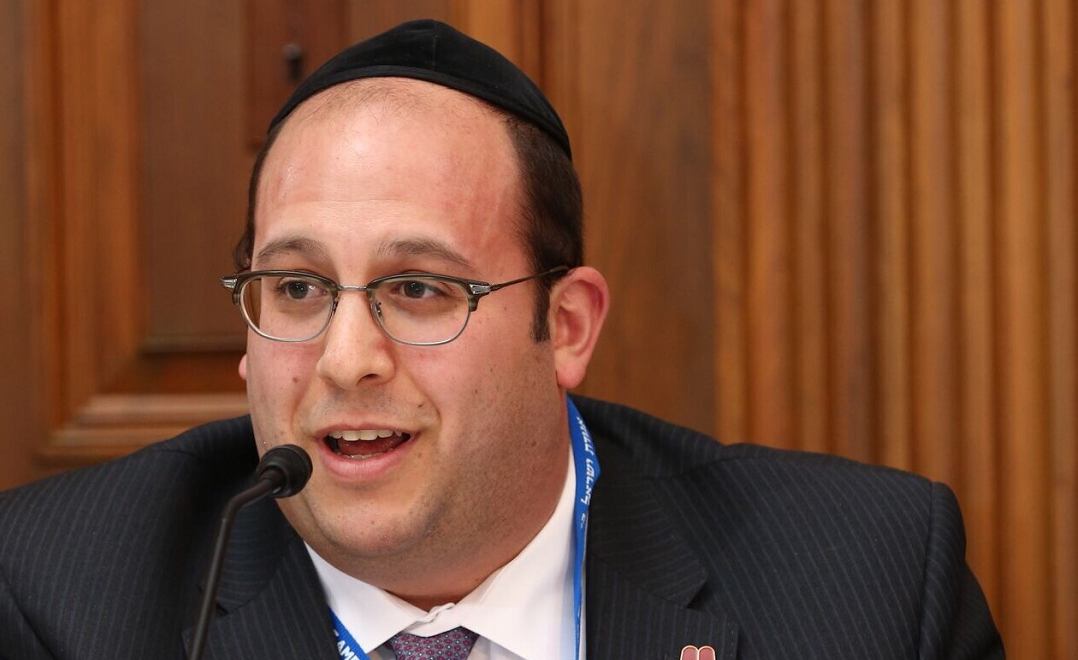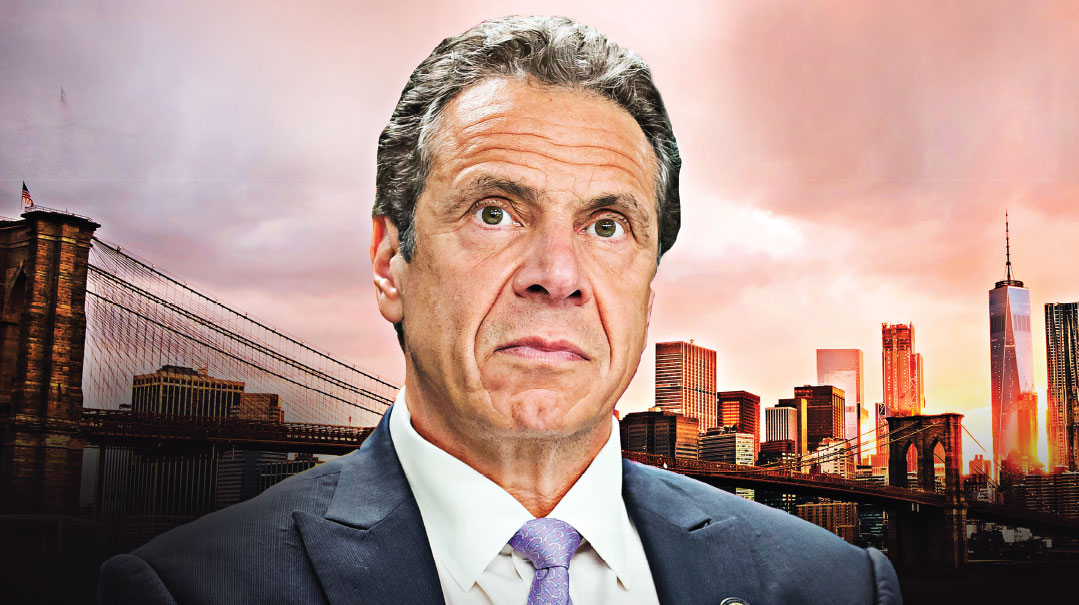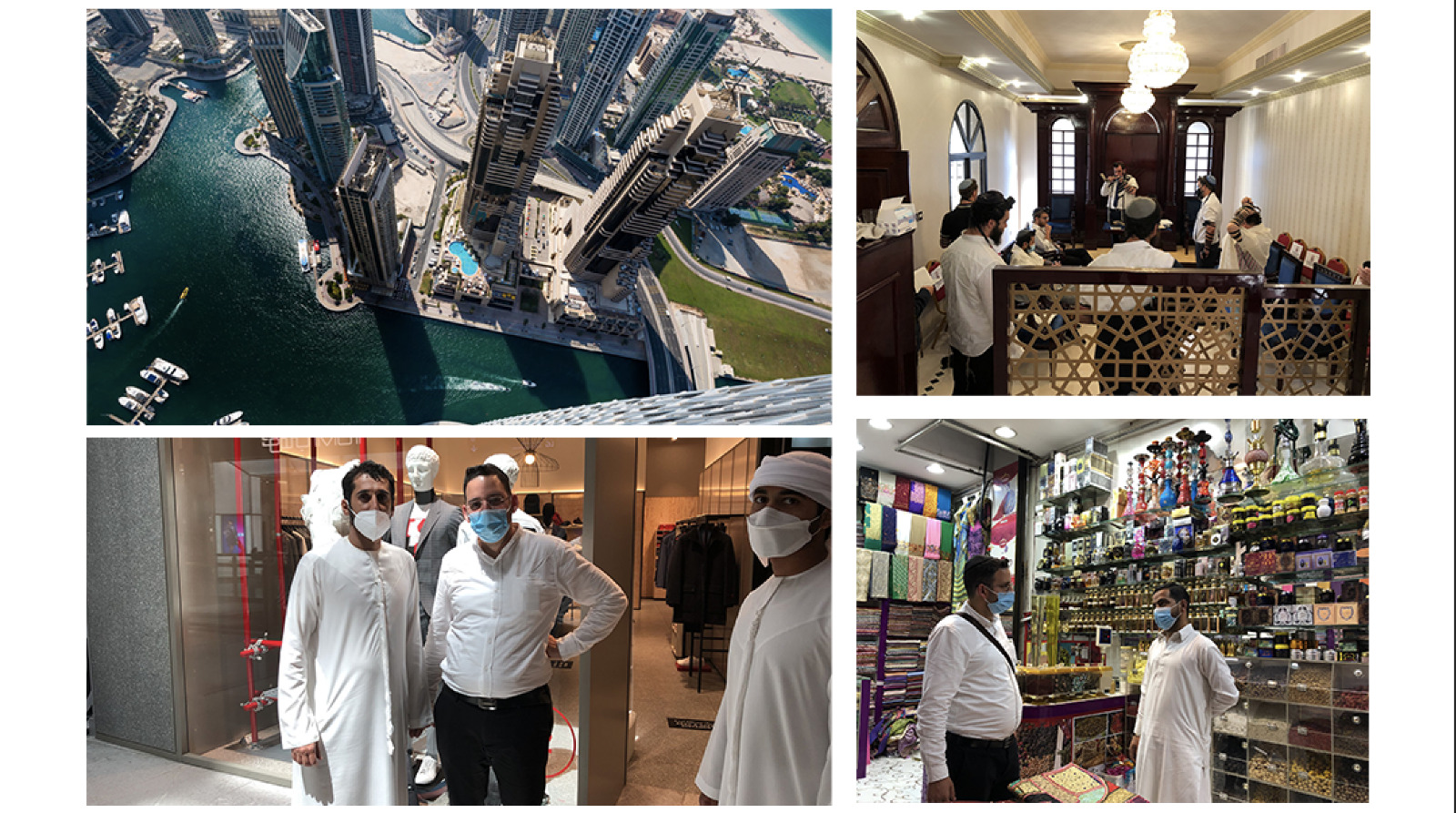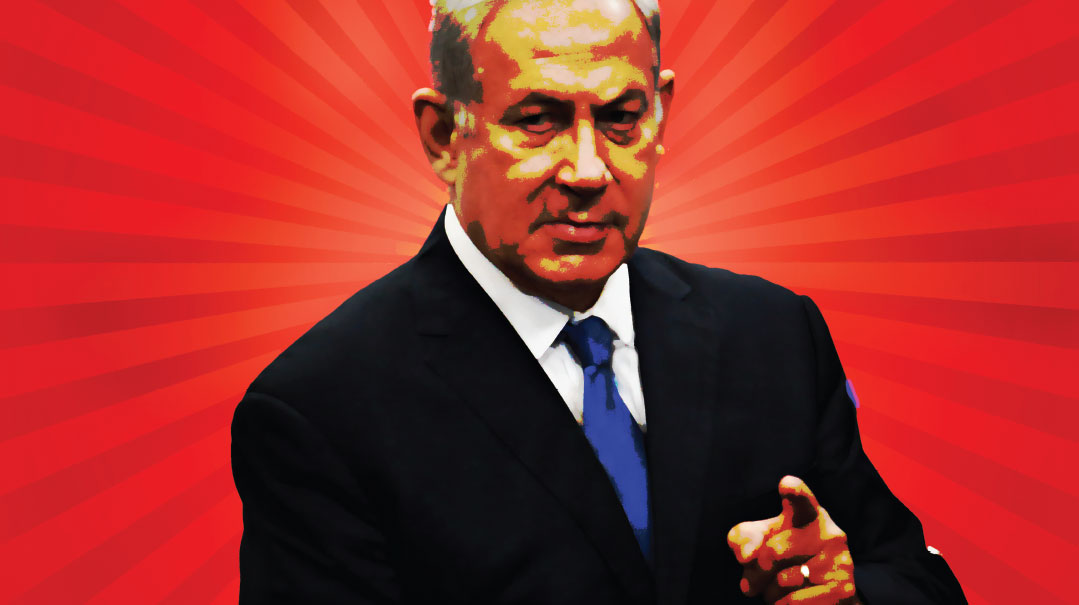Bibi Returns to his Roots

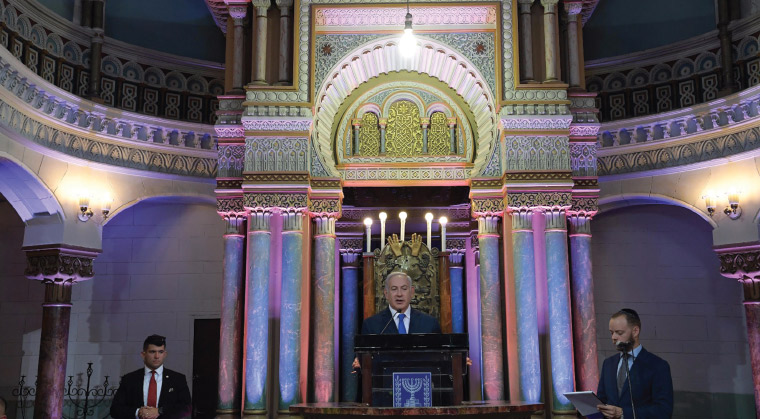
Binyamin Netanyahu spent four days in Vilnius, the capital of Lithuania, on an official state visit, but on a personal level, his first-ever visit there marked a homecoming to the land from which his grandparents fled. It was laced with statecraft, memories, tears, and triumph, with sober awareness of the dangers and challenges ahead
A
nyone standing in the prime minister’s office in Vilnius, Lithuania, last Thursday evening, as Foreign Minister Linas Linkevi?ius shook hands with Binyamin Netanyahu, would have heard the Israeli leader say: “All my life I’ve been waiting for this moment.”
It was a somewhat inscrutable comment. As Israel’s prime minister, Netanyahu has visited capitals more exotic than Vilnius, including New Delhi and Buenos Aires, and nations of far greater geopolitical importance to Israel, including the United States and Russia.
The mystery cleared up the next day. Netanyahu, accompanied by his wife Sara, attended a memorial at Ponar, a suburb of Vilnius, for the more than 70,000 Lithuanian Jews murdered there between 1941 to 1944 by the Germans and their Lithuanian collaborators.
Tearfully approaching the podium, Netanyahu said: “I am here because over 100 years ago my grandfather, a young student in yeshivah, was beaten nearly to death by anti-Semitic hooligans not very far from here.”
The assault took place before World War I, when Netanyahu’s grandfather, Nathan Mileikowsky, was a bochur in the Volozhin yeshivah. Nathan was waiting for a train when he saw two anti-Semites accosting two other bochurim and intervened on their behalf.
“Before he lost consciousness,” Netanyahu recounted, “he said, ‘If I live, I will take my family and I will go to the Land of Israel to rebuild our independent life so that we may continue the tradition of the brave Maccabees. I want to say to my grandfather today: Saba, I am back here, back here in this forest of death as the prime minister of Israel.”
Netanyahu’s grandfather kept his vow and made aliyah in 1920, but died in 1945, some 14 years before Bibi was born. But this watershed piece of family history is indelibly etched into Netanyahu’s mind. From a security perspective, it helps explain Netanyahu’s single-minded focus on Israel’s national defense. From a personal standpoint, it clarifies why he devoted four days to visiting Lithuania, a small country of less than three million people — an eternity in relation to the pressing defense and domestic political issues that would normally keep the prime minister glued to his Jerusalem bureau.
Netanyahu spent most of his first two days meeting with Lithuanian prime minister Saulius Skvernelis. The prime ministers of the other two Baltic states, Latvia and Estonia, joined them. Netanyahu views all three Baltic nations as a friendly bloc that has gone to bat for Israel inside the institutions of European Union in Brussels, bodies that often express outright hostility to Israel. The Baltic states, all NATO members, view Israel as a rising world power and Netanyahu as a leader whose ability to gain Vladimir Putin’s ear may come in handy, should Putin cast his eyes on reestablishing Russian dominance over the Baltics states.
Perhaps reflecting the friendly tenor of the meetings, Lithuania’s Skvernelis called Israel “a strategic partner in the Middle East,” while Netanyahu went one step further, calling Israel and Lithuania “natural allies” and “two nation-states, proud of [their] national identity while protecting individual rights.”
Both leaders agreed to further economic cooperation, mainly in high tech and cyber defense, as well as laser technology, where Lithuania is an industry leader.
Still, politics being politics, in a formal statement at the end of the conference, the Baltic states reiterated their support for the EU’s long-standing position calling for a two-state solution.
And in a press briefing that Netanyahu held shortly before Shabbos began, in which I sat eye to eye across the table from the prime minister, Netanyahu said that he told the Baltic leaders he does not raise the issues of Crimea and Ukraine with Putin.
“It’s not because these issues don’t exist, but there are more important issues to discuss between us,” Netanyahu said of his frequent talks with Putin.
Reliving Jewish History Unofficially, the outsized four-day visit enabled Netanyahu — who quipped that “I’m a Litvak on both sides of my family” — to return to his roots.
On Shabbos, he and Sara strolled the brick and stone streets of the old Jewish ghetto in Vilnius. Just one synagogue — the Chorale Synagogue — remains standing for Vilnius’s 2,200 present-day Jews. It’s a far cry from the city that was once nicknamed the Jerusalem of Lithuania, which boasted some 100 synagogues and served a community of more than 100,000 Jews.
“We saw the Jewish homes,” Netanyahu said during an address to the Jewish community Sunday at the synagogue. The images were haunting. “Sara said she could see the faces of the little Jewish children from 75 years ago,” Bibi said.
Some 90 percent of Lithuanian Jewry were murdered during World War II.
Following that address, Netanyahu visited the Lithuanian National Library, which has seforim authored by the Vilna Gaon. The Netanyahus were especially interested in looking at antique books from across Lithuania, including a commentary on Tehillim from 1512, children’s books and textbooks in Yiddish from the prewar era, as well as more contemporary writings from leaders of the Zionist movement, including Zev Jabotinsky and Chaim Nachman Bialik, who learned in Yeshivas Volozhin with his grandfather.
We also visited the kever of the Vilna Gaon, which was relocated to the new Jewish cemetery in Vilnius. At that point, the Netanyahus disappeared from the inquisitive eyes of the press, reportedly for a side trip to other parts of Lithuania where they have family roots.
Modern-day Vilnius, a city of 550,000 people, didn’t quite come to a halt for the four-day visit, but the Netanyahu entourage, which included most of his senior staff and journalists from leading Israeli Hebrew-language dailies and television stations, often brought traffic to a standstill.
Scenes of drivers politely yielding to the motorcade, which numbered well over a dozen vehicles, intrigued the Israeli press contingent. One pundit noted that nothing quite that orderly could ever occur in Israel. From my vantage point as a resident of central Jerusalem often inconvenienced by visiting delegations, I noted that in Israel, they simply close the roads completely to avoid such complications.
Security was tight and administered jointly by the prime minister’s security detail and Lithuanian authorities.
(Excerpted from Mishpacha, Issue 725)
Oops! We could not locate your form.

